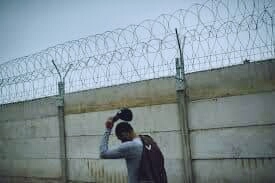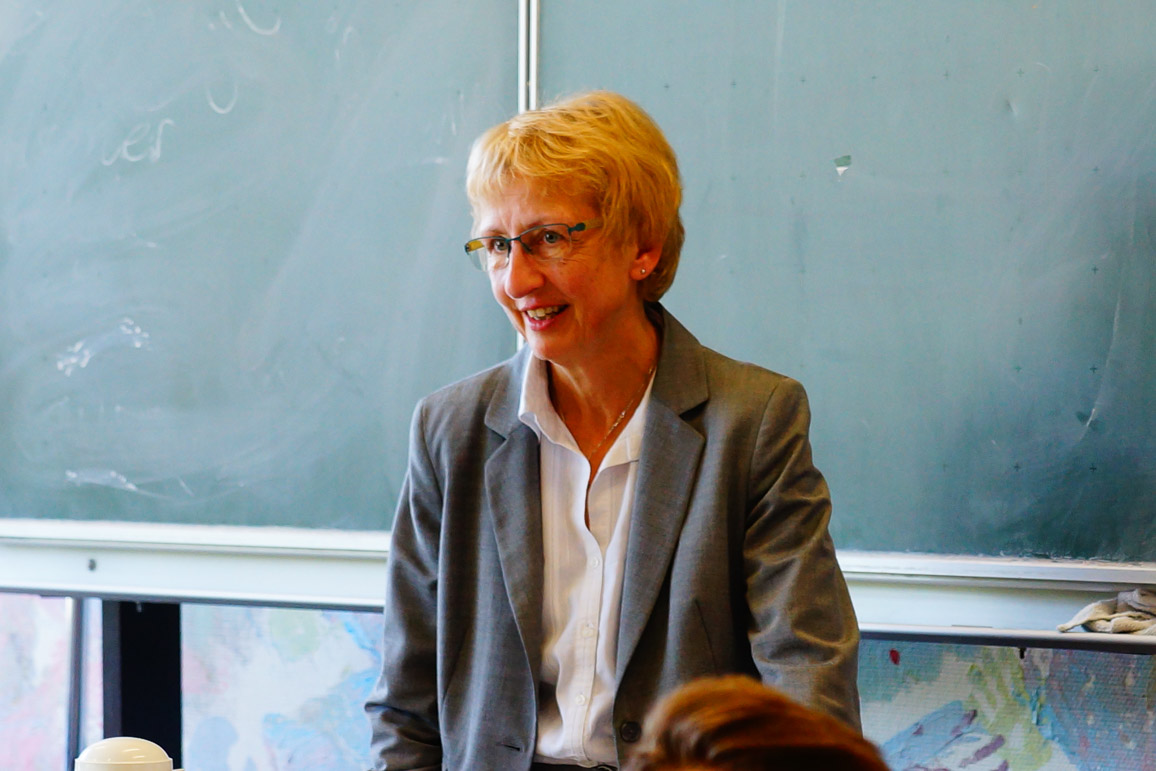The Hungarian Erasmus+ Pupils visit a refugee home
- Details
- Hits: 16896
The pupils speak!
On 1 March the Erasmus+ pupils of the Ádám Vay Gymnasium in Hungary visited a refugee home in the guarded quarter in Nyírbátor.

In our country it is not easy to meet migrants or refugees. We had the possibility to visit the refugee home with the permission of the police captain of the regional grovernment.
Fanni: We wanted personal contact with the refugees. To speak with them, learn their stories. But the strict rules apply to us, too. There was no possibility of taking photos.
Kornél: It would be really good to present out project results in this guarded quarter. The volunteers or even the probable future employees could promote integration with the help of our ideas.
Rebeka: The ideas which we thought out in the Erasmus+ framework could be collected in an informational brochure and distributed to other institutions. They could be applied under the leadership of an expert. Our integration projects could lead here to successful integration.
Nóra: I don’t think it is fair that the foreign students studying here in Hungary can be brought here immediately if their visas expire.
Tamás: In my opinion, this building looks much too much like a prison. Policemen and bars! If there were more programmes, those living here could spend their days in a more useful way.
Jocó: If volunteer work was possible here, these places could become livelier. It is not unimportant how one feels. Sometimes very talented and educated people come here. Their problem is that they have no personal documents.
Robi: If there were no religious or cultural differences among the people living here, everything would be much easier. But there is the possibility to solve these conflicts. Our ideas could serve as the first steps.
The opinions of the pupils confirm that the work of the past years, the common ideas, the large amount of information, experience, and sometimes our pupil mobilities have led the pupils to recognize a need for change.
It is difficult to assure that any programme will reach the people living here. The present valid rules make this impossible. The pupils’ idea of an informational brochure is worth a try. Some organisation could perhaps use our results later.
Encounter with Malick Gueyen from Senegal
- Details
- Hits: 2987
“You can only allow yourself to be black if you are a football or basketball player.”
Malick Gueyen came to Gran Canaria without papers. The beginning was difficult especially because of the language. Today he told the pupils of IES Tamogante that he is a member of the initiative “Manteros”, an activity the refugees take part in to survive.
“Manteros” or street sellers offer their handmade goods for sale on a “manta” (blanket). It is illegal and therefore they pack up their things in the blanket and flee when the police come.
He described the discrimination and injustice against his fellow men.
“We all want a worthy life but they make a crime of what people are forced to do because of poverty… In Senegal an activity you do if there is no other possibility is not criminal. We all want a worthy life.”
The integration coordinator of the Kolping City Kerpen was our guest
- Details
- Hits: 3369
Ms Seiche gave the pupils an understanding of the concepts of “integration” and “migration” in her speech and explained the different dimensions of integration: the structural, cultural and identificatory integration. Then she discussed the topics of prejudice and individuality with the pupils. They found the information interesting and could understand the topic. Concepts, definitions and courses of action were presented to the students. It was especially thought-provoking that some of the fellow pupils had migration and integration backgrounds and therefore recognizable that integration happens among us.

“Water exhibition” in the corridors of the IES Tamogante Gran Canaria 2018
- Details
- Hits: 2923
The exhibition “Agua” (Water) was initiated within the framework of the culture week at IES Tamogante (Gran Canaria). Water: what we take for granted is a privilege in many countries in Africa.
Many girls cannot attend school because they have to walk for hours to fetch water. Water shortage and famine are the reasons that many migrants leave their countries. What would you do in their place?

One Tuesday my mother decided to become a German
- Details
- Hits: 3981
Fahimeh Farsaie is an author and journalist who was born in Teheran, the capital of Iran. Her book “One Tuesday my mother decided to become a German” depicts what it means to approach live in Germany through the eyes of a 20-year-old.






